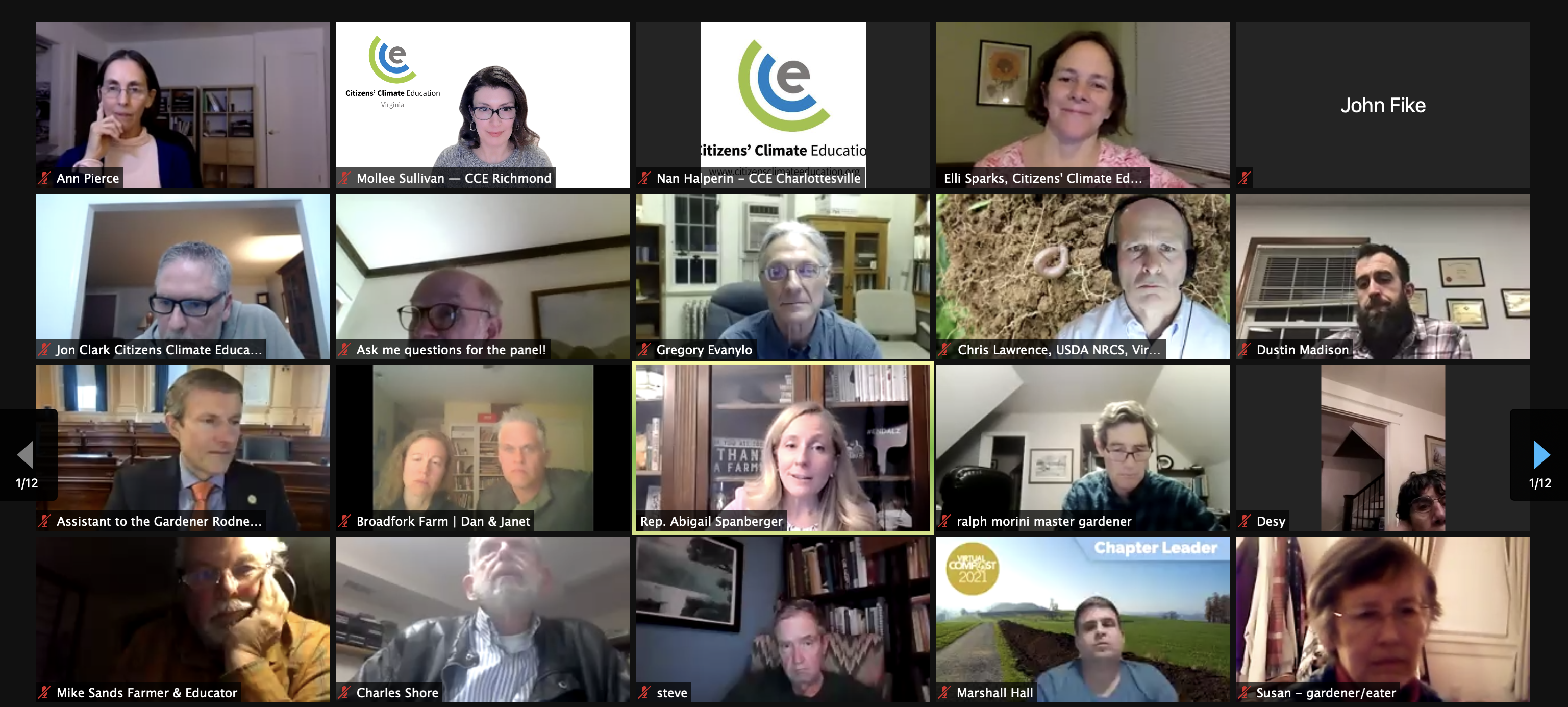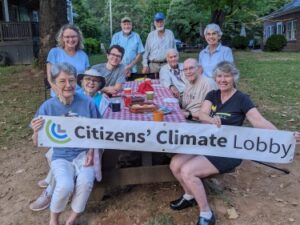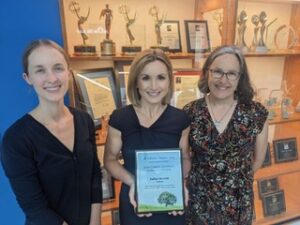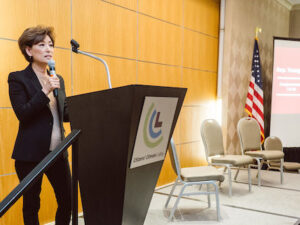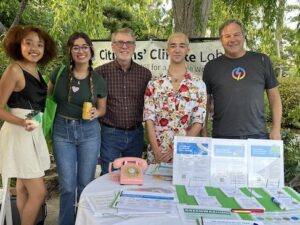By Gwyneth Lonergan
As the COVID vaccine rollout progresses, CCL chapters across the country are continuing to find new and innovative ways to connect with one another safely. Last summer, Mollee Sullivan, a member of the CCL Richmond chapter, discovered the 2020 documentary “Kiss the Ground” on Twitter. The film centers on the global movement of regenerative agriculture.
Mollee and her fellow chapter member, Ann Pierce, were inspired to organize an event related to the film. Elli Sparks, CCL’s Director of Field Development, agreed to moderate a panel discussion. Elli’s Charlottesville chapter, the Richmond chapter, and the New River Valley chapter pooled their efforts to bring the event together.
In February, after months of planning, Mollee and Ann’s vision came to life. Attendees watched “Kiss the Ground” and a second documentary, “Living Soil,” on their own, giving them a firm foundation for a rich discussion. Then, attendees joined farmers, gardeners, and legislators together over Zoom to discuss agriculture practices that can lead to better yields, higher profits, and a healthier climate.
Advocates in the fields and in the legislatures
Chris Lawrence, a state cropland agronomist at USDA Natural Resources Conservation Service, kicked off the forum by discussing the cause of soil degradation and breaking down the concept of regenerative agriculture. A number of farmers from all over the state shared their personal experiences with regenerative practices during the first half of the event, including Janet Aardema & Dan Gagnon of Broadfork Farm, Michael Carter Jr. of Carter Farms, Dustin Madison of Engel Family Farms, and Brent Wills of Bramble Hollow Farm.
Brent, an agroecology consultant who also serves as the President of the Virginia Association for Biological Farming, said, “Farmers are the first environmentalists…and the regenerative agricultural movement is trying to bring those two ideas [farming and the environment] to the same table.”
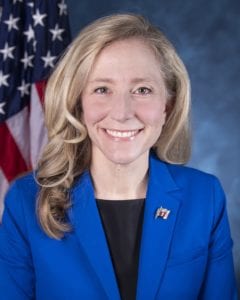
Representative Abigail Spanberger (VA-07)
Mollee’s Representative Abigail Spanberger (VA-07) also participated in the panel discussion. Mollee invited her because of her dedication in Congress to supporting Central Virginia farmers. In addition to sitting on the House Committee on Agriculture, Representative Spanberger serves as the Chair of the Conservation and Forestry sub-committee and is the lead sponsor of the bipartisan Growing Climate Solutions Act, which she plans on reintroducing in the current legislative session.
Representative Spanberger says she is interested in “the space where agriculture and climate change come together,” as evidenced by her work in Congress. During the panel, she sat in front of a sign in her office that says “If you ate today, thank a farmer.” Representative Spanberger said, “Farmers, producers, and agro-businesses have important perspectives and experiences to bring to the table when we’re up here [on Capitol Hill] talking about how we tackle the challenges posed” by climate change.
This sentiment was echoed by a state legislator on the panel, Delegate Rodney Willett, who discussed his work on the Agriculture Chesapeake and Natural Resources Committee and various pieces of legislation introduced in the House of Delegates that would benefit Virginia farmers, gardeners, and landowners.
Watch the full panel discussion and Q&A on YouTube here:
The power of community
The event, with a Zoom capacity of 300, drew 299 participants—an amazing turnout for an even better night of discussion. Over an hour and a half, participants learned about the power of regenerative agriculture to increase yield and profit and strengthen rural economies, what obstacles and opportunities exist for individuals that utilize these practices, and how elected officials can effect positive change in the lives of farmers and landowners.
Attendees left the forum feeling more knowledgeable about regenerative agriculture and inspired to arrange similar events in their own communities. One attendee thanked both the organizers and panelists, saying, “It is so encouraging that people are working so hard on [regenerative agriculture]. A second attendee said they “would definitely be interested in hosting something similar here in Maryland,” a testament not only to the positive impact of the discussion but also to the reach organizers were able to achieve.
After the event, organizers distributed a comprehensive list of resources that attendees can utilize as they navigate the fascinating world of regenerative agriculture. As they do, they can continue to press Congress for legislative solutions that support healthy farming practices and a stable climate.
Gwyneth Lonergan is a communications intern for CCL and a senior at Wake Forest University pursuing a BA in Politics & International Affairs.

